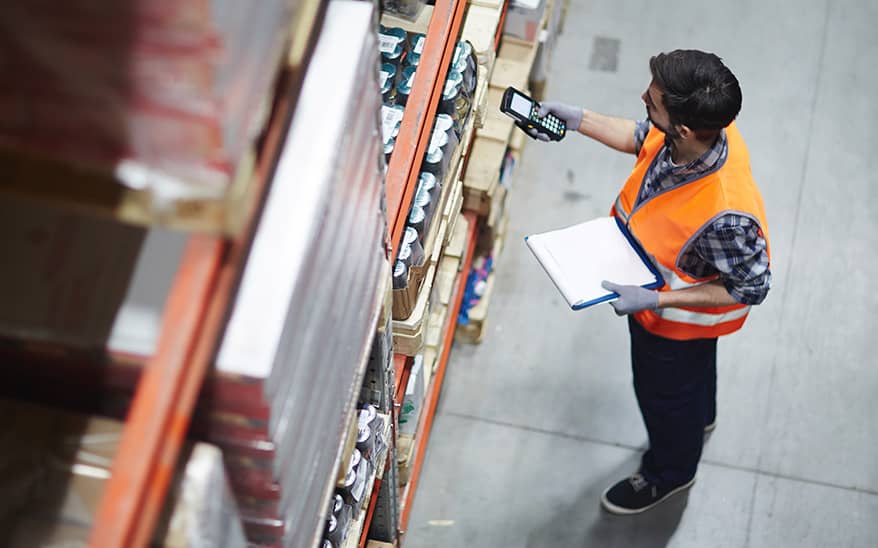Roundtable: AI and efficiency in the supply chain
- 20 February 2025
- Ben Sillitoe

Manhattan Associates co-hosts retail and wholesale breakfast roundtable, as supply chain and tech leaders gather to discuss artificial intelligence and the drive for efficiency.
Everywhere you look in retail and its adjacent industries, there’s some major development work going on in the supply chain. And there’s a big shift in direction towards automation and use of new technology, too.
Food and fashion retailer Marks & Spencer (M&S) acquired its food logistics partner Gist in 2022 to take control of its supply chain and build in some very notable efficiencies which it has reported on in recent trading updates.
And health products retailer Holland & Barrett is on the drive towards change as well. It is automating its Burton distribution centre (DC), as part of a “multimillion-pound” modernisation of its supply chain. In the meantime, it is working alongside THG to service its e-commerce operation while the changes are incorporated.
The aim: more efficient and cost-effective operations in the long run.
Asos announced in January it will close down its warehouse in Atlanta, US, as part of a cost-cutting exercise that will see the online fashion house distribute from its UK base, while Boohoo has already shuttered its US site and is now serving the country from its UK DC.
Amazon continues to add new capability to its warehouses, be it implementing artificial intelligence (AI)-powered scanning systems that check the quality of parcels before they head out of its sites or experimenting with drones in Darlington – if it gets the relevant approval to do so, of course.
In short, there’s a lot going on in retail supply chains and there is a lot of new technology emerging that is supporting the work. Against that backdrop and the hype surrounding the transformative capabilities of Generative AI (GenAI), it was the right time to bring together the industry for a summit.
While the world’s leaders were in Paris for the AI Action Summit, me and Manhattan held an important conversation of our own with industry leaders about the potential of AI in the supply chain and the need to drive efficiencies through the value chain.
Represented at the breakfast roundtable were Amazon, as well as tool wholesaler Dormole, footwear retail group Dune, M&S, fashion retailer Reiss, grocer Sainsbury’s, The Rug Company, and Uniqlo parent Fast Retailing.
The conversation was held under the Chatham House . Maintaining the anonymity of those involved I’ve picked out a few key takeaways and the central themes of the discussion.
Real retail appetite for AI
The retailers in the room were clearly very aware of the transformative potential of the latest tech, and GenAI in particular, but there was a widespread view that it’s critical to think business benefit first rather than introducing new tech for tech’s sake.
There’s “a real appetite for AI”, said one delegate, about the feeling within large and small enterprises alike. They described GenAI capability as “the new internet” in terms of the influence it could have on commerce, while acknowledging they were still treading with caution when it came to adoption.
Best use cases for GenAI in the supply chain
Delegates shared examples of where GenAI is already creeping into their work. One roundtable guest said their team had developed chatbots to help with internal processes.
“Productivity is always a big focus for retailers, and there’s a real hope advancements in AI can help here,” they added.
Another said the biggest value from AI comes in demand forecasting, and this has been the case for years – but they have yet to find the true business case for GenAI in supply chain operations.
Others were looking at how new advancements in technology can drive better transport planning and ensure fleets are operating in the most efficient way, which helps them from both a cost and a sustainability perspective.
One retailer said GenAI could solve a lot of pain points when it comes to bringing together business data for compliance. “So many organisations are bogged down with reporting that they’re looking for tech to help them,” they added.
There’s a propensity to “shoot for the stars” with GenAI and aim for compelling customer-facing deployments, another delegate noted, but they suggested a key area where it can support retailers behind the scenes is – rather unglamorously but not unimportantly – in improving data quality across the supply chain and boosting communication throughout an organisation.
Are retailers prepared for change?
One guest said their organisation had created a cross-functional AI team bringing together people from different departments to look at potential use cases in an aligned – not siloed – fashion.
Elsewhere, one IT director revealed they are building a different culture across their organisation, after acknowledging this will be needed as the opportunities of GenAI present themselves. Retailers tend to do what they always have done, he said, “but we’ve managed to instil a different culture and one which means we’re more regularly asking ‘might there be a new way to do that?’.
Another retailer added: “It’s the Wild West in AI at the moment with so many companies offering their services and solutions.
“We know the tech is there but it’s a case of ‘how do we want to use it?’ – driving efficiency is important to us but whether we want it for cutting costs or driving revenue that all needs to be decided up front. We can’t spend the money twice so we need to make sure the return on investment (ROI) is going to be there.”
One roundtable attendee said: “As an industry, I’m not sure we’re ready to embrace the GenAI use cases just yet.
“We need to create a proper business case to take to the board and show the ROI, but it’s still so new which makes this difficult to do right now.”
Moving forward
There’s clearly excitement around new strands of AI emerging in the retail supply chain space, but as with any new technological era there is also caution – and rightfully so.
As we saw at Manhattan Associates’ Exchange 2024 event in Barcelona, there are a growing number of GenAI-enabled tools available to support retailers and wholesalers in different aspects of their operations.
There’s the Manhattan Active Maven chat agent, which allows retailers and brands to serve their customers better. It is trained on Manhattan Active Omni's data which enables it to handle a wide range of inquiries, such as complex order changes, cancellations, returns, and exchanges, and, because of GenAI it’s more intelligent than the average chatbot.
Manhattan Assist, meanwhile, which is another GenAI-powered offering built into every Manhattan product, can be used by retailers and brands to navigate the planning and execution supply chain software more easily and ask really specific questions to support the work they need to complete.
As Pieter van den Broecke, EMEA Leader Supply Chain Commerce Strategies at Manhattan, said at the roundtable: “Our AI-enabled software has helped organisations drive productivity, better plan their transport routes, and serve customers in more compelling ways.
“As the GenAI hype continues, retailers need to stop thinking about starting a GenAI project per se and, instead, consider what they want to achieve as a business and how GenAI might enable that ambition – that’s the key shift in mindset required.”
He continued: “Also, AI should not be an add-on; it should be embedded in the broader tools retailers and wholesalers are using to improve and grow their businesses.”
Thanks to all attendees for a fascinating roundtable discussion. The event took place on 13 February at London’s Charlotte Street Hotel.









